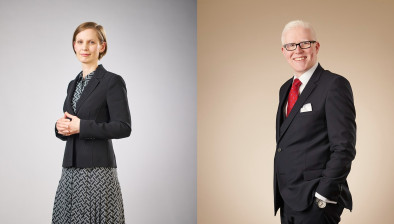Fergus Adams: Is it time for WFTO* to trump WFH? How collaboration, relationship-building and curiosity can work for the benefit of all
The MD of engineering business Dougall Baillie Associates, Fergus Adams, argues that the increasing rate of return to the office can be good for everyone.

Fergus Adams
The obituaries for office-based working were hastily wheeled out when the country had to adopt remote working overnight two years ago, but it very much appears that they may well have been premature.
According to a recent report in the Financial Times, people are returning to offices in their greatest numbers since the pandemic began, with occupancy rates hitting 27.5%, the highest since March 2020.
Of course, this is still well short of the occupancy norms of around 60% for most companies, but the trend is markedly upwards, driven by Government edict, peer pressure and intangible elements such as an improvement in the weather.
This, I am strongly inclined to say, is a good thing. At root, we are social animals. Work consumes a significant proportion of our waking hours and it is becoming evident that teamwork is more important than ever.
Research shows that collaborative problem-solving leads to better outcomes. People are more likely to take calculated risks that lead to innovation when they are backed by a team, and group working encourages personal growth and job satisfaction.
One classic argument for this is that, while Albert Einstein gets the credit for discovering the theory of relativity, the truth is that he relied on conversations and discussions with friends and colleagues to refine his concept.
Certainly, during the isolation period, it became clear to us that some of our colleagues were suffering considerable mental stress. They perhaps did not realise it, but it was obvious to us. And the proof was that, when invited back into the office, they once again started to thrive, personally as well as professionally.
Another key indicator has been the change in retention rates. Historically, there has been a very low staff turnover rate at Dougall Baillie Associates (DBA) – in the time before Covid, perhaps three people out of 40 would come and go in a year.
In the last two years, that figure has risen to 11, only one of which was a long-term team member. The other 10 experienced WFH as the norm, having joined within the last 2-3 years and who had never been party to the camaraderie, social interaction and – dare one say it these days? – banter of normal office life.
To be clear, I am not by any stretch of the imagination advocating a return to a strict office regime, with rigidly-set hours. The past two years have consigned that model to the dustbin of history and flexible working, which DBA has always embraced, now simply seems so obvious and sensible.
And research by talent specialist Beamery suggests that employees are aware of the limitations of WFH. In a survey, 60% said they felt that working from home over the pandemic had had an adverse impact on their personal development and progression in the workplace.
WFH, of course, has its place. It can ideally suit, for instance, people whose main function is writing reports. But in an environment such as ours, where drawings and designs need inspiration as well as expertise, collaboration is a vital part of the mix.
I have noticed this particularly with our young graduates, who demolish all the negative stereotypes about Gen Z, and show a work ethic which is positively inspiring. They are keen to be keen.
They are also acutely aware of the value not only of formal training but of shadowing and being mentored, and simply sitting next to people with a wealth of experience. Even casual water cooler chat can provide insights which are invaluable.
From an employer perspective, organisational culture has a proven influence on business performance, particularly revenue growth, net income, productivity, employee absence, creativity and employee retention.
The benefits for employees are as valuable. A good office culture increases collaboration, enhances relationship-building, encourages curiosity and breaks down barriers to allow ideas to be shared.
In measuring work-life balance, it could be argued that the office provides the scales in which to weigh it.
*Working From The Office.














